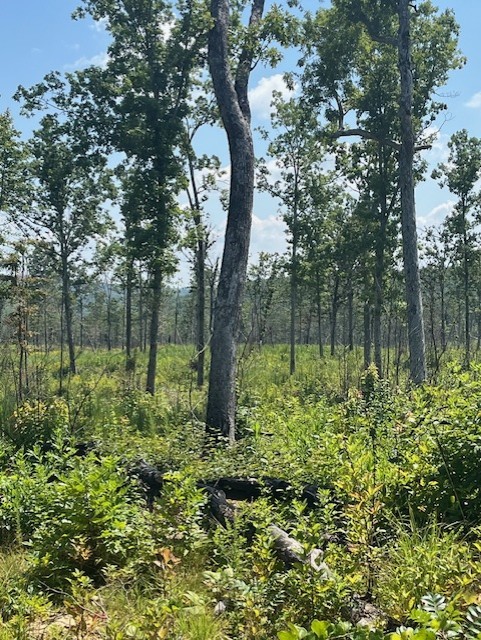NWTF Tennessee, TWRA Boost 200 Acres of Habitat for the Hatch
EDGEFIELD, S.C. – The NWTF and the Tennessee Wildlife Resources Agency are continuing their partnership to put more nesting and brood-rearing habitat on the ground for wild turkeys across the state, with the completion of the 200-acre Choctaw Project on the Prentice Cooper WMA being one of the recent demonstrations.
“The success of the project would not and could not be fulfilled without the help of our NWTF partners,” said Marty Griffith, TWRA Prentice Cooper WMA manager. “We all know how expensive everything is nowadays, and projects like these are no exception. This particular project came out of a need for good quality early successional habitat, as we all know getting sunlight to the ground to produce native forbs and shrubs is an important component of quality wildlife habitat for all wildlife.”

The recent project primarily involved creating an oak-pine savanna ecosystem on a 200-acre section of the WMA, providing the early successional habitat wild turkeys need for nesting and brood-rearing during the spring and summer, as well as benefitting many other game and nongame species.
The project was initiated when TWRA conducted a selective timber harvest, helping reduce the amount of less-than-desirable tree species and leaving native, wildlife friendly trees, namely pines and oaks. The selective timber harvest was the first step to creating a savanna ecosystem.
The second step involved using a selective herbicide to eliminate hardwood species that are not favorable to wildlife. Herbicides work quickly and prevent the targeted species from regenerating, allowing desirable plants to flourish with less competition.
With increased sunlight to the ground to stimulate native grasses and wildflowers and with pines and oaks dotting the landscape, the 200-acre segment of the Prentice Cooper WMA was starting to resemble an oak-pine savanna ecosystem. These ecosystems are characterized by large expanses of grasses and wildflowers, interspersed with native pine and oaks. Savanna ecosystems are ideal for wild turkeys. For instance, the herbaceous vegetation provides excellent brooding and foraging for the birds, and the trees provide shade, important hard mast and roosting habitat.
TWRA also established permanent firelines on the project site to help facilitate prescribed burning operations within the area, which further stimulate the native grasses and wildflowers.
“In 2023, to help combat the encroachment of stump spouts and woody competition [following the timber thinning operation], we approached the NWTF about partnering with us on a large-scale herbicide treatment,” Griffith said. “This has proven to be successful, and with the help of prescribed fire, we have been able to transform these acres into very high-quality nesting and brood rearing habitat for our wild turkeys on the WMA. The NWTF has always been a valued partner on Prentice Cooper WMA, and I hope the partnership continues for many years to come.”
The Tennessee NWTF State Chapter has funded 11 projects between 2023 and 2024 that contributed to the NWTF’s Habitat for the Hatch Initiative, with over $433,000 (with partner support) helping impact of over 11,000 acres for the year.
“We are proud to have such a great working partnership with TWRA,” said Derek Alkire, NWTF district biologist for Alabama, Kentucky and Tennessee. “The agency sees immense value in our Habitat for the Hatch Initiative, and they have greatly helped us increase the amount of nesting and brood-rearing habitat in the Volunteer State.”
About the National Wild Turkey Federation
Since 1973, the National Wild Turkey Federation has invested over half a billion dollars into wildlife conservation and has positively impacted over 23 million acres of critical wildlife habitat. The NWTF has also invested over $10 million into wild turkey research to guide the management of the wild turkey population and to ensure sustainable populations into perpetuity. The organization continues to deliver its mission by working across boundaries on a landscape scale through its Four Shared Values: clean and abundant water, healthy forests and wildlife habitat, resilient communities, and robust recreational opportunities. With the help of its dedicated members, partners and staff, the NWTF continues its work to provide Healthy Habitats. and Healthy Harvests. for future generations.
